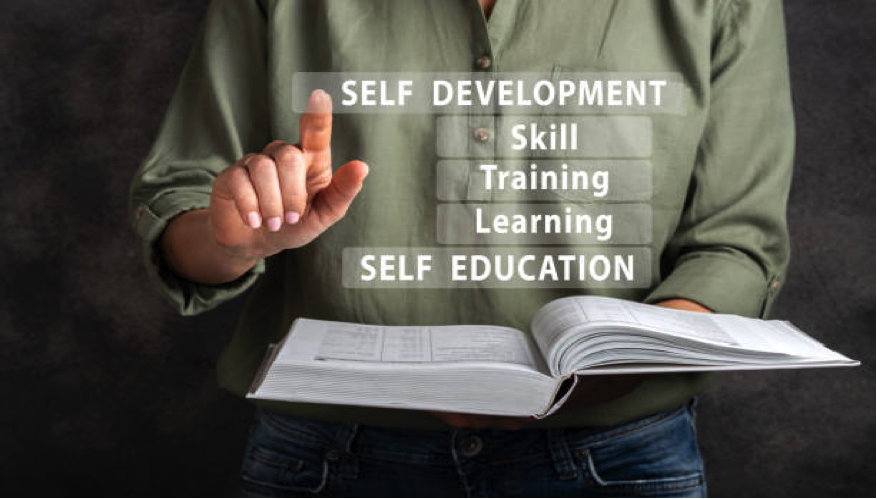Life coaching, a profound voyage into the depths of human potentiality, is not merely a profession; it’s an artistry of empowerment, a synergy between mentorship and self-discovery. At Luke Hawkins, we understand that life coaching is more than just a guiding hand—it’s about transforming lives through structured, empathetic support and actionable insights. In this exploration, we dive into the core principles that underpin effective life coaching, designed to inspire both new and continuing journeys.
Key Takeaways:
- Empowerment: True empowerment comes from within; life coaching equips you with the tools to unlock your potential.
- Goal-Setting: Clear, achievable goals are the heart of successful life coaching.
- Personal Growth: Developing strategies for personal growth can dramatically improve quality of life.
- Accountability: Having someone to share your progress with increases the likelihood of success.
- Flexibility: Effective coaching adapulates to your personal needs and goals.
Understanding Life Coaching
Life coaching, at its core, is the catalyst for transformation, an intimate journey where the coach serves as both navigator and cheerleader. Our story, intertwined with the evolution of life coaching, is one of empowerment, growth, and unlocking untapped potential. Just as Olympic athletes harness the expertise of their coaches to reach new heights, individuals across diverse fields enlist the guidance of a life coach to amplify their success.
From seasoned executives to aspiring entrepreneurs, our collaborative approach propels clients towards their aspirations, transcending barriers and fostering breakthroughs. With each session, we embark on a shared voyage towards fulfillment, leveraging insights and support to navigate life’s challenges and embrace its possibilities.
What Makes a Great Life Coach?
- Listening Skills: Above all, a coach must listen actively to understand the nuances of the client’s situation.
- Empathy: They must genuinely care about the individuals they assist.
- Objectivity: Coaches provide a fresh, unbiased perspective on your life.
- Encouragement: Motivation is a critical ingredient that coaches must foster.
- Professional Integrity: Ethical practices are the foundation of trustworthy coaching relationships.
Techniques in Life Coaching
Life coaches utilise a plethora of techniques to facilitate personal growth, including:
- Goal-setting exercises
- Accountability measures
- Strengths assessment
- Motivational interviewing
- Personalised action plans
How Can Life Coaching Benefit You?
Research has shown that coaching and ongoing professional development provide a variety of benefits for individuals, including improved work performance, skills, and more effective communication skills. Participants in coaching also reported enhanced relationships, increased confidence, and better work-life balance. Here’s what you need to know about the personal benefits of life coaching.
Key Components of Effective Life Coaching
Effective life coaching integrates various components that contribute to a successful outcome:
- Self-Understanding and Awareness: A profound aspect of life coaching involves helping individuals gain a deep understanding of themselves. This includes recognising personal strengths, weaknesses, and potential areas for growth. Coaches employ techniques such as personality assessments and reflective exercises to aid in this discovery process.
- Strategic Goal Setting: Without clear goals, it’s difficult to achieve significant progress. Life coaching focuses on identifying specific, measurable, achievable, relevant, and time-bound (SMART) goals. This method ensures that goals are not only clear but also attainable and aligned with the individual’s core values.
- Consistent Accountability: Having someone to hold you accountable can make a significant difference in maintaining motivation. Regular check-ins with a life coach ensure that you stay on track and are reminded of your objectives, making adjustments as necessary to continue progressing.
- Constructive Feedback: Feedback is essential in the coaching process. Coaches provide constructive criticism that is not only honest but also supportive, helping individuals learn from experiences and improve their approach towards their goals.
- Resource Guidance: Life coaches also act as a resource hub by suggesting books, workshops, seminars, and other educational materials that can provide additional insights and learning opportunities to support the client’s growth journey.
The Impact of Life Coaching on Personal Development
Personal development is a key focus of life coaching. This aspect of coaching looks at improving self-esteem, communication skills, and overall personal satisfaction. The benefits are often substantial and long-lasting, leading to:
- Enhanced Self-Confidence: As clients achieve their goals and recognise their own abilities, their self-confidence naturally grows.
- Improved Communication Skills: Coaches work with clients to develop better communication strategies, essential for both personal and professional relationships.
- Greater Emotional Intelligence: Understanding and managing one’s emotions and empathising with others are common areas of focus that improve interpersonal interactions and decision-making capabilities.
Professional Growth Through Life Coaching
Similarly, life coaching has profound implications for professional development. Coaches help clients navigate career transitions, enhance job performance, and develop leadership skills. This can lead to:
- Career Advancement: By setting career goals and strategising on how to reach them, individuals can accelerate their career progression.
- Increased Job Satisfaction: Understanding what you value in your work and striving to align your career path with these values can greatly increase job satisfaction and overall happiness.
- Leadership Development: Many coaches specialise in leadership coaching, which is designed to hone decision-making skills, improve leadership capabilities, and manage work-life balance effectively.
Common Methods Used in Life Coaching
To achieve these outcomes, life coaches may employ various methods tailored to the client’s unique needs, including:
- Visualisation Techniques: To help clients envision their success and the steps needed to achieve it.
- Behavioural Modification Strategies: To change detrimental habits and replace them with beneficial ones.
- Stress Management Techniques: To cope with anxiety and stress, maintaining mental health and focus.
Overcoming Challenges with Life Coaching
Life coaching also provides crucial support in overcoming personal challenges. Whether dealing with stress, time management issues, or personal setbacks, coaches offer strategies and support to help clients overcome these hurdles and regain confidence.
- Problem-Solving Skills: Coaches help develop these skills, which are vital in tackling issues both professionally and personally.
- Resilience Building: Learning to bounce back from setbacks is another critical area where coaches provide guidance.
The Continuous Journey of Growth
Life coaching is not a one-time event but a continuous process of development and learning. The relationship between a coach and client often evolves over time to address new goals and challenges as they arise, ensuring sustained progress and adaptation.
By integrating life coaching into your life, you commit to a lifelong journey of improvement and learning. This journey not only helps in achieving immediate goals but also builds the foundation for future success and happiness.
Integrating Life Coaching into Everyday Life
Implementing the insights and strategies from our blog on life coaching into daily life is crucial for sustained success. This might involve setting daily objectives, practicing mindfulness, or simply taking time each day to reflect on personal growth and achievements.
A Holistic Approach
At Luke Hawkins, we believe in a holistic approach to life coaching. This means looking at all aspects of an individual’s life—personal, professional, mental, and emotional—to ensure comprehensive growth and improvement. Our methods are tailored to meet the diverse needs of our clients, providing support wherever it is needed most.
Why Choose Luke Hawkins?
Choosing Luke Hawkins for your life coaching needs means selecting a partner who is dedicated to your success. Our coaches are certified professionals, passionate about making a positive impact in the lives of their clients. We use proven strategies and a personalised approach to help you achieve your fullest potential.
Conclusion
Ready to unlock your potential and make tangible progress towards your dreams? Contact Luke Hawkins today to find out how life coaching can transform your life. Our bespoke coaching plans are tailored to fit your personal and professional needs, empowering you to live your best life. Get in touch with us to start your journey to success.
Frequently Asked Questions
Q1: What exactly does a life coach do?
A life coach encourages and counsels clients on a range of professional and personal issues. Life coaching is distinct from giving advice, consulting, counseling, mentoring and administering therapy. You would hire a coach to help you with specific professional projects, personal goals and transitions.
Q2: Who should consider life coaching?
Anyone feeling stuck, unmotivated, or at a personal or professional crossroads could benefit from life coaching.
Q3: How long does it typically take to see results from life coaching?
While immediate progress can be seen in some cases, typically it might take a few months to realise significant changes.
Q4: What are some common misconceptions about life coaching?
Many believe it’s only for troubled or unsuccessful people, but it is in fact for anyone looking to improve their life.
Q5: How do I choose the right life coach?
Look for certified professionals with relevant experience and a style that resonates with your personality.
Q6: Can life coaching improve relationships?
Yes, it can help individuals work through personal issues that might be affecting their relationships.






